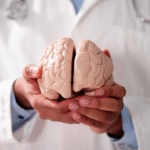Link Between Hydration and Energy Levels
Hydration and Energy Levels are directly connected. Water powers nearly every system in your body—from nutrient transport to oxygen delivery. When hydration drops, your cells can’t produce energy efficiently, leading to fatigue, poor focus, and slower metabolism.
Proper hydration isn’t just about quenching thirst—it’s about fueling performance and maintaining mental clarity.

1. Why Hydration Matters for Energy
Water is essential for cellular energy production. Inside your cells, mitochondria—the “powerhouses” of the body—depend on proper hydration to convert nutrients into ATP (adenosine triphosphate), the body’s main energy molecule.
Even mild dehydration (1–2% body weight loss in water) can cause measurable drops in energy, alertness, and endurance.
➡ Read more from Harvard Health on hydration
2. How Dehydration Affects the Brain and Mood
Your brain is about 75% water. When hydration levels fall, brain cells shrink slightly, reducing cognitive function and concentration.
Studies from the Journal of Nutrition show that mild dehydration increases fatigue, irritability, and mood swings. Proper hydration, on the other hand, improves memory, reaction time, and decision-making.
3. The Role of Electrolytes in Energy Balance
Hydration isn’t only about water—it also requires electrolytes like sodium, potassium, and magnesium. These minerals regulate nerve signals, muscle contractions, and fluid balance.
Low electrolyte levels can cause fatigue, muscle cramps, and sluggishness, especially during exercise or hot weather. Drinking plain water alone may not be enough during intense activity—balanced hydration drinks can help restore electrolytes.
4. How Hydration Affects Metabolism
Your metabolism depends on water to process nutrients and burn calories. Research published in The Journal of Clinical Endocrinology & Metabolism found that drinking 500 ml (about 17 oz) of water temporarily increased metabolic rate by 30%.
Water supports digestion, helps the liver metabolize fat, and flushes out toxins—all key to sustained energy and metabolic efficiency.
5. Best Practices to Stay Hydrated and Energized
To optimize hydration and energy levels, follow these evidence-based practices:
- Start your day with water. Drink a glass first thing in the morning.
- Drink before you’re thirsty. Thirst signals mild dehydration.
- Eat water-rich foods. Include fruits like watermelon, oranges, and cucumbers.
- Balance electrolytes. Add a pinch of salt or electrolyte powder after sweating.
- Limit caffeine and alcohol. Both can dehydrate your body.
6. Signs You’re Not Hydrated Enough
Watch for these subtle signs of low hydration:
- Afternoon fatigue or brain fog
- Dry lips or skin
- Dark urine
- Headaches
- Dizziness or lightheadedness
These symptoms often mimic tiredness, but the real cause is dehydration.
Key Takeaways
- Hydration and Energy Levels are inseparable.
- Even mild dehydration can impair brain function and metabolism.
- Balanced water and electrolyte intake keep energy steady throughout the day.
- Consistent hydration supports both physical performance and mental focus.
➡ Internal Link: Read next: How Sleep Quality Affects Metabolism and Weight Management











